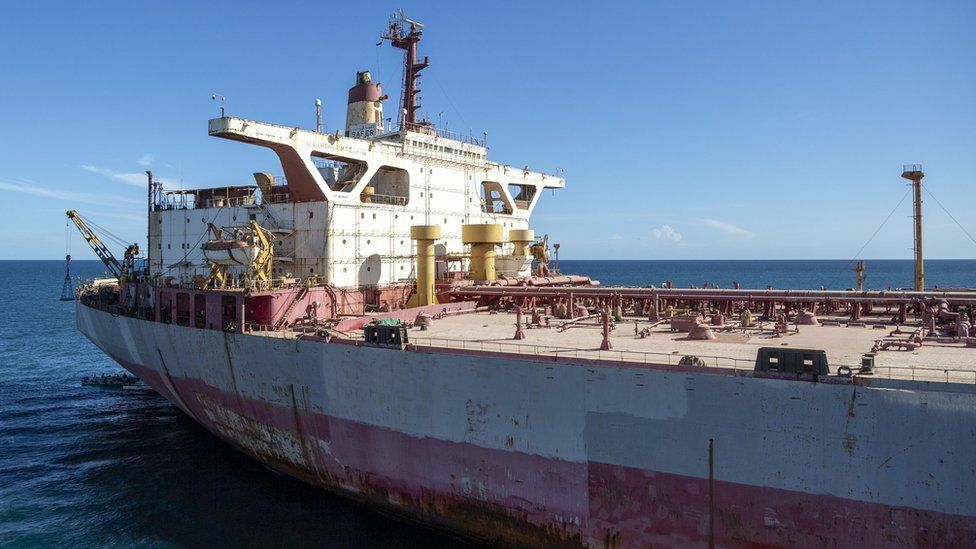UN begins removing million barrels of oil from decaying Yemeni supertanker

The United Nations has initiated an operation to remove over a million barrels of oil from a deteriorating supertanker, FSO Safer, anchored off Yemen’s Red Sea coast. A salvage vessel carrying a team of experts arrived at the site on Tuesday to prepare the tanker for the transfer of oil to another vessel, Nautica, which is set to sail from Djibouti next month. The Safer is at risk of exploding or breaking apart, potentially leading to an environmental disaster.
The UN has raised US$114 million for the unprecedented project through donations from numerous member states, private companies, and a crowdfunding campaign. However, an additional US$29 million is urgently needed to safely moor Nautica to an anchored loading buoy and tow the Safer to a recycling yard. Achim Steiner, the UN Development Programme Administrator, described the arrival of the salvage support vessel Ndeavor, operated by Dutch company SMIT, as a “critical step” and a “proud moment”. He also highlighted the importance of prevention, stating that funds spent now could prevent a disaster potentially costing billions in the future.
The Safer was initially built as a supertanker in 1976 and later converted into a floating storage and offloading facility for oil. It is anchored close to the Ras Isa oil terminal, which is under the control of Yemen’s Houthi rebel movement. The vessel’s structural integrity has significantly deteriorated since maintenance operations ceased in 2015, following the Houthis’ seizure of large parts of Yemen and the Saudi-led coalition’s intervention in support of the Yemeni government. The ongoing war has reportedly resulted in over 150,000 deaths and left 21 million people in need of aid.
The Safer contains four times the amount of oil spilled during the 1989 Exxon Valdez disaster in Prince William Sound, Alaska. According to the UN, a major spill in the Red Sea would have devastating consequences, including the destruction of coral reefs, mangroves, and other marine life, exposure of millions of people to highly polluted air, devastation of fishing communities, closure of nearby ports, and disruption of shipping through the Suez Canal. The UN estimates that the clean-up cost alone would amount to US$20 billion.
Latest Thailand News
Follow The Thaiger on Google News:
























